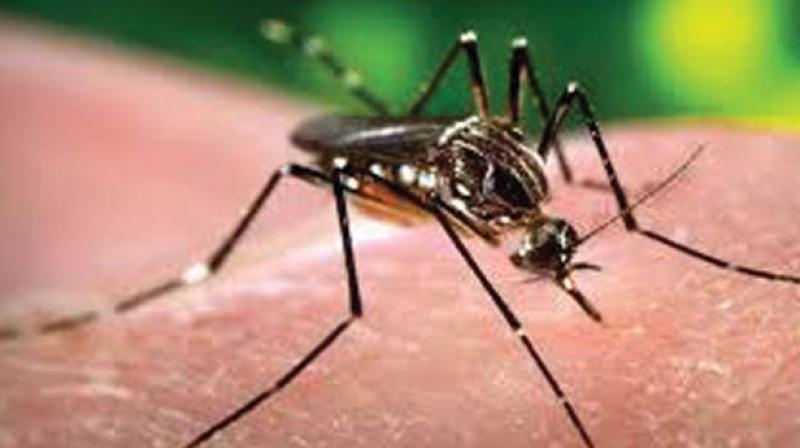Second-time dengue cases on the rise in Bengaluru
The problem has worsened in the last two months and this year the number of cases has crossed 5,000.

Bengaluru: The intermittent rains in Bengaluru have resulted in a sharp rise in the number of dengue cases, as water stagnation in many parts of the city is leading to a rise in the number of mosquitoes.
The problem has worsened in the last two months and this year the number of cases has crossed 5,000.
However the bigger problem is that the people getting affected by dengue for the second time is also on the rise. This year it accounts for nearly 10 per cent of total number of dengue cases.
It is very rare for a person with primary dengue infection to have secondary dengue. However, if a person who previously had dengue fever is again infected by another serotype (secondary dengue infection), then the chances of developing severe dengue is much higher.
The secondary dengue infection is more severe than primary one due to exaggerated immune response of the body.
When a person gets infected with dengue virus for first time, body’s immune system activates antibody and certain immune cells to fight against the dengue virus. When the same person gets infected again, there is enhanced immune response leading to release of chemicals called cytokines in the body which causes bleeding and fluid leakage from blood vessels, which are signs of severe dengue.
The natural course of dengue is divided into three phases. First phase is called febrile phase, which lasts for 2-7 days and patients suffer from fever, headache, body ache, joint pain and flushing skin.
The second phase is called critical phase. This starts when fever reduces and temperature becomes normal. It lasts for 1-2 days and the patients can have plasma leakage from blood vessels leading to swelling of eyelids, face and abdomen. The patient can also have bleeding manifestations as in bleeding from nose, blood in vomit and black coloured stools. Platelets start dropping during this phase.
The patient in severe form of these cases manifests low BP state called shock and severe organ impairment of liver, kidney, heart, lungs and brain. These manifestations are more common in secondary dengue infection. Hence identification of dengue fever in febrile phase will alert both the patient and physician to monitor and treat the patient appropriately.
The third phase is called as recovery phase. It lasts for 1-2 days. As the name suggests, the condition f the patient improves and he has a sense of well being, has much better appetite and platelet counts also start rising.
Dr Sagar Hiremath, Consultant, Paediatrics, Narayana Health City, pointed out that mosquitoes breed in water stored in containers such as tyres, coconut shells, disposable cups, coolers, overhead tanks, construction sites etc.
“Hence these things in which water can stagnate should be removed and disposed properly. Also one should use personal protection measures from mosquitoes like full sleeve clothes, use mosquito repellents and mosquito nets,” he added.

